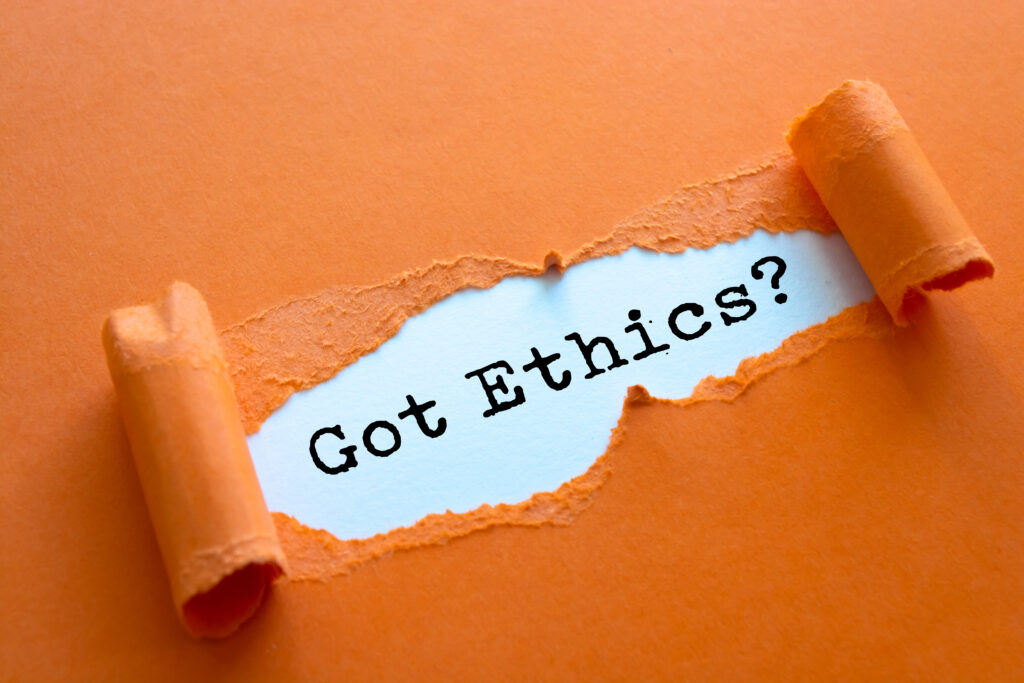There is evidence to suggest that companies with strong ethical compliance programs and a commitment to legal and regulatory compliance may be more economically viable in the long term. This is because these companies are less likely to face costly legal or regulatory issues, which can negatively impact their bottom line and reputation.
Strong ethical compliance programs can also help to promote a culture of transparency and accountability within a company, which can improve employee morale and retention, as well as customer loyalty and trust. This can lead to increased productivity, efficiency, and profitability over time.
MGSN Legal #ETHICALCOMPLIANCE is good for business. Attorney Gerard McCabe helps the #Smallandmedium sized businesses to understand the value offering of a corporate Ethical Compliance Program. pic.twitter.com/BvRBpvJg2q
— MGSN (@MGSNHQ) April 21, 2023
Companies that prioritize ethical compliance may be viewed more favorably by investors and other stakeholders, who are increasingly concerned about the social and environmental impact of the companies in which they invest. In recent years, there has been a growing trend towards sustainable investing, with investors seeking to invest in companies that demonstrate a commitment to environmental, social, and governance (ESG) issues.
Ethical Compliance programs must include workplace safety plans and anti-discrimination, anti-harassment and anti bullying plans. In order to achieve the best value of these Ethical Compliance Programs, strong educational, training, enforcement, disciplinary policies and procedures will need to be implemented.
Small and medium-sized companies(SME) provide most Americans with their employment. There is a perception that only large enterprises need to have Ethical Compliance programs. This perception is dead wrong. Defense lawyers often hear incredulous clients assert, when under investigation,”but everyone in the business is doing it”. The commonality of a practice and the excuse of the cost factor is not a defense. The Department of Justice provides a clear presentation of its evaluation of a corporation under investigation for alleged criminal transgressions.
Small and medium sized companies should hire a compliance lawyer to develop a viable ethical compliance program. SMEs can benefit greatly from hiring a lawyer to help develop and implement ethical compliance programs. While larger companies often have in-house legal departments dedicated to ensuring legal and regulatory compliance, smaller companies may not have the same resources or expertise.
Hiring a lawyer with experience in ethical compliance can help small and medium-sized companies to identify potential legal and regulatory risks, develop policies and procedures to mitigate those risks, and ensure ongoing compliance with applicable laws and regulations.
Ethical compliance lawyers can also help to educate company personnel on the importance of ethical behavior and the consequences of non-compliance, and can provide training and guidance on best practices for maintaining a culture of ethical conduct.
Moreover, companies that demonstrate a commitment to ethical compliance are more likely to attract and retain employees, customers, and investors who prioritize ethical behavior and social responsibility. By investing in ethical compliance, small and medium-sized companies can establish a reputation for integrity and accountability, which can help to improve their bottom line and long-term success.
The unfortunate results of companies that do not take the preventative measures with a robust Ethical Compliance Program can be devastating, for the consumers and the business.
There are numerous cases of small companies that have gone out of business due to ethical and legal violations. Here are a few examples:
Peanut Corporation of America (PCA) – In 2009, PCA was found to have knowingly shipped salmonella-tainted peanuts, resulting in a widespread outbreak that sickened over 700 people and caused 9 deaths. The company was forced to file for bankruptcy and ultimately went out of business.
Theranos – The blood testing startup, was found to have misrepresented the accuracy of its tests and defrauded investors out of millions of dollars. The company ultimately went bankrupt in 2018.
Enron – While Enron was a large company, it’s worth mentioning as an example of a company that went out of business due to ethical and legal violations. In 2001, the company was found to have engaged in widespread accounting fraud, leading to its bankruptcy and the dissolution of its assets.
These are just a few examples of large enterprises that suffered the fate of poor ethical business practices, but there are countless other cases of small companies that have faced similar fates due to ethical and legal violations.
There are several examples of small businesses that have gone out of business due to bribery and bid rigging. Here are a few examples:
Transmar Commodity Group Ltd. – The SME COCOA trading company, filed for Bankruptcy protection, after its CEO pled guilty to bank and wire fraud to obtain lines of credit for operations.
Neri Construction was banned from working in the excavation and construction related business, after OSHA sued it in Federal Court for willful violation of OSHA safety standards.
Boh Bros. Construction Co. has agreed with the U.S. Equal Employment Opportunity Commission (EEOC) to a consent judgment which requires the company to pay $125,000 in compensatory damages to a former employee in a sex discrimination/same sex harassment case.
These are just a few examples of small businesses that have gone out of business due to bribery and bid rigging. It’s important for small businesses to prioritize ethical behavior and legal compliance in order to avoid such outcomes.
It’s important for companies of all sizes to prioritize ethical behavior and legal compliance in order to avoid such outcomes.


